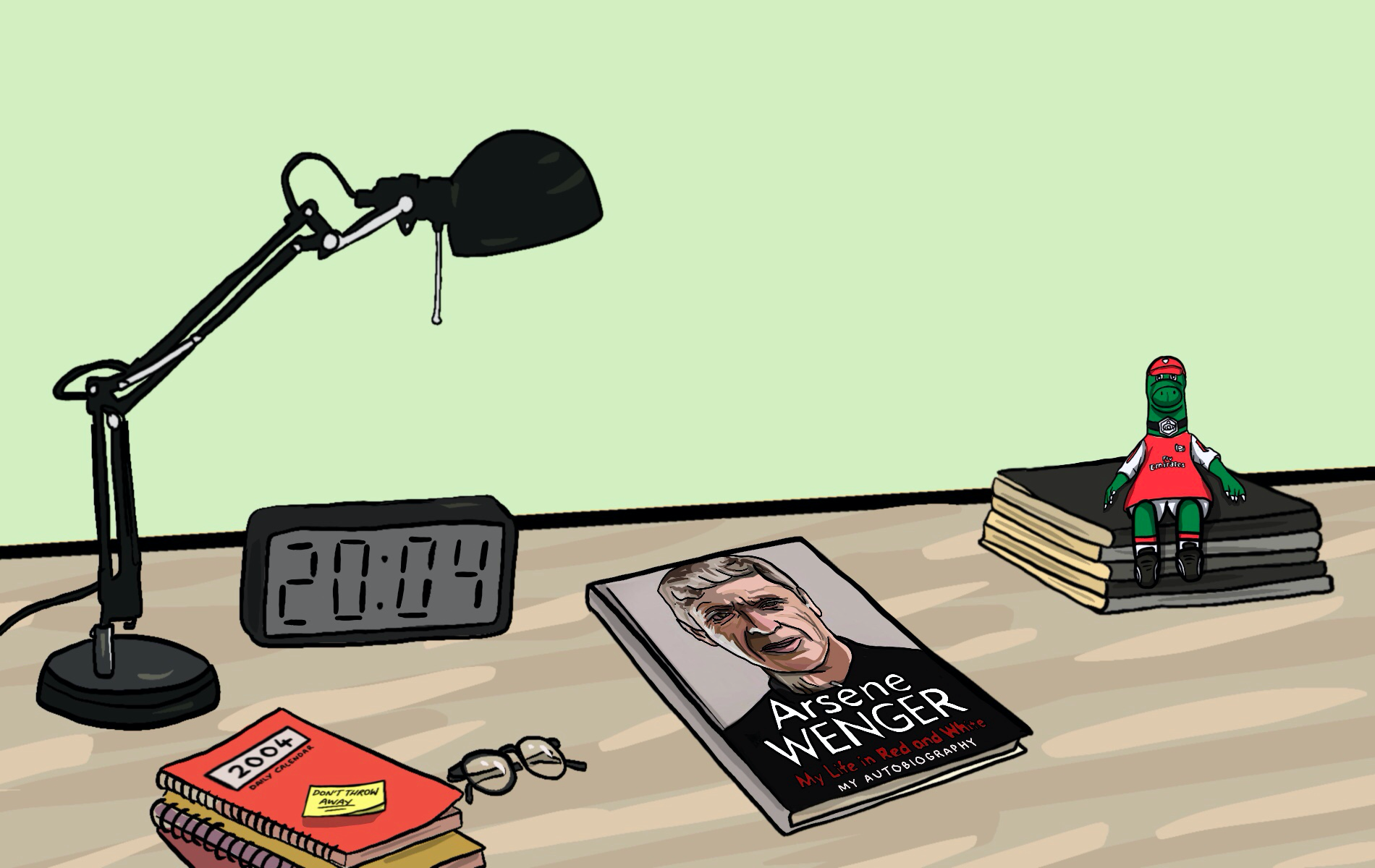My Life in Red and White: My Autobiography (2020) by Arsène Wenger
I don’t like autobiographies. Maybe it’s the cynicism that comes with ageing, but I don’t really care too much about other people’s life stories. What’s behind an individual’s success is not something that I am overly interested in or particularly bothered by. I have avoided reading any sports autobiography (yes, even Crouch – fuck that) not through any preference of individuals but because I just don’t care.
That being said, when Arsène Wenger announced My Life in Red and White earlier this year, my ears certainly pricked up. To me, and to many others, Arsène is an enigma. Throughout his career, he has remained elusive, measured, and often a closed book. He managed my club since I was three years old and for twenty-two years. Yet, he was a man I knew very little about. I clearly decided to put aside my aversion for autobiographies as I immediately pre-ordered myself a copy.
In management, his principle was to ensure that winning happened often, fairly and in style.
The early stages of the book follow the early stages of his life, growing up in a small village in Alsace. He tells us of his family, his roots, where his love (or obsession as it comes across in this narrative) of football came from. But what is both clear and poignant in Wenger’s early years is his observance: of people, of society and of life. He points out that his parent’s bistro was ‘a school for observing individuals and how groups worked’ and it was here that he would be ‘constantly listening, watching, attempting to understand’. These observations and the specific memories recalled from his childhood are seen to shape not only his future interests in football management, but more significantly, his views on life and society itself.
What is made clear throughout this book is that Wenger is a deeply thoughtful and profoundly sociological man. Throughout his career, he has been an innovator; he has pursued different, better ways of doing things while seeking the answers of equality – giving people and players the chance to prove themselves, to thrive, to be a part of his art. Even his fairly unremarkable playing career did not deter his study and passion for the game, managing Nancy and Monaco in France before making a bold move to a rapidly emerging Japanese league with Nagoya Grampus Eight. Wenger has obviously devoted much of his life to football, and still does. For many of us, this doesn’t sound like something to regret but for Wenger there is definitely a hint. His autobiography regularly admits that his success in football took its toll on some personal relationships, particularly the time spent with his daughter, Léa, as well as his enjoyment of the wider world and culture.
‘I often imagine the first words I will exchange with God when I die. He will ask me what I did with my life, what meaning I gave it. I’ll tell him I tried to win matches!’ Here, Wenger again writes with tones of regret but his passion, and the importance he gives to football, are what makes this man such an important symbol of the sport. Wenger is a man dedicated to his work. In management, his principle was to ensure that winning happened often, fairly and in style. He sees football as an art, an art that should be beautiful. His drive to make fans happy on a Saturday afternoon with good football and three points is clear in his writing. He is a man who loves to win and deeply despises losing.
Above all, as an Arsenal fan reading this, what is pure and obvious is Wenger’s deep love for Arsenal Football Club and the profound pain he felt leaving it. His discussions of the glory years are as you would expect – lauding past players whose contributions to the club are unmatched. Yet, what is interesting is his high regard and pride of some of his later teams in the early Emirates era. Despite a lack of trophies or success, Wenger feels that these teams were, in a way, just as successful as the title winners and “Invincibles” that came before. Stressing the lack of finances and the strength of their opponents, Wenger’s consistent ability to qualify for the Champions League was looked on at the time as a joke. “The fourth-place trophy” is one that Arsenal fans haven’t lifted in a while (despite having an arguably better team at present) and so time and perspective forces us to look back on this time in Arsenal’s recent history with a different pair of eyes. It is clear that his departure from Arsenal has and still does cause him great pain and sadness. He states his conscious decision to stay away from the club, to not attend games as it is too raw and too painful: ‘I had to learn to live without Arsenal, without that constant tension, without the players I loved, without that pitch, that turf was my adrenaline, my drug, my reason for living.’ I for one hope to see him sat in the stands of the stadium he built for us sooner rather than later. Whenever you’re ready, Arsène.
Finally, Wenger discusses life after Arsenal and his job at FIFA. The last chapter almost reads like an admission of his football philosophy – what he has always wanted to see righted with the game and his somewhat socialist beliefs on the world of football. He focuses on education and pedagogy, women’s football, football in the States and even refereeing. Wenger wants the game to be about just that: the game itself. Throughout his book he refers to childhood. What football meant to us when we were young, the feeling we had for it and the inner child within us that just loves chasing a ball around a soggy field or chaotically throwing our limbs around in celebration. This is what football is for Wenger, childlike joy.
I suppose we have to ask ourselves why autobiographies are popular or even important. Oasis’ Liam Gallagher was once asked if he had his hero John Lennon in front of him, what is it he would ask? ‘Nothing. I don’t care about his life. All I care about is his music.’ Why is it important to understand someone’s life and their background in order to appreciate their art? Maybe I’ve changed my mind on autobiographies after reading this one but for most of us, releasing or reading them isn’t necessarily about information per se but simply “dishing the dirt” (maybe, this was my problem). As a result, this book has received an underwhelming response. But did we really expect a man who has been respectful of opponents throughout his career to come out swinging for say, José? Take this for what it is. The story of a man who is, and always has been, in love with football.



